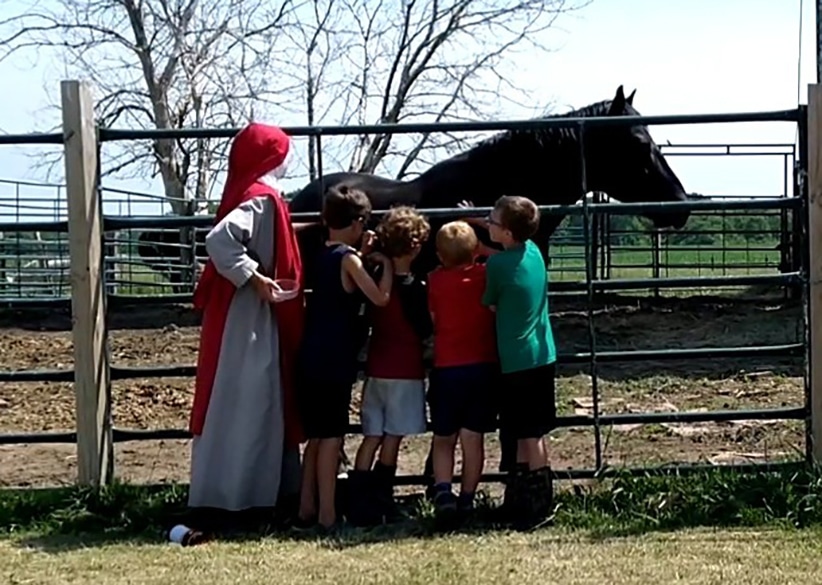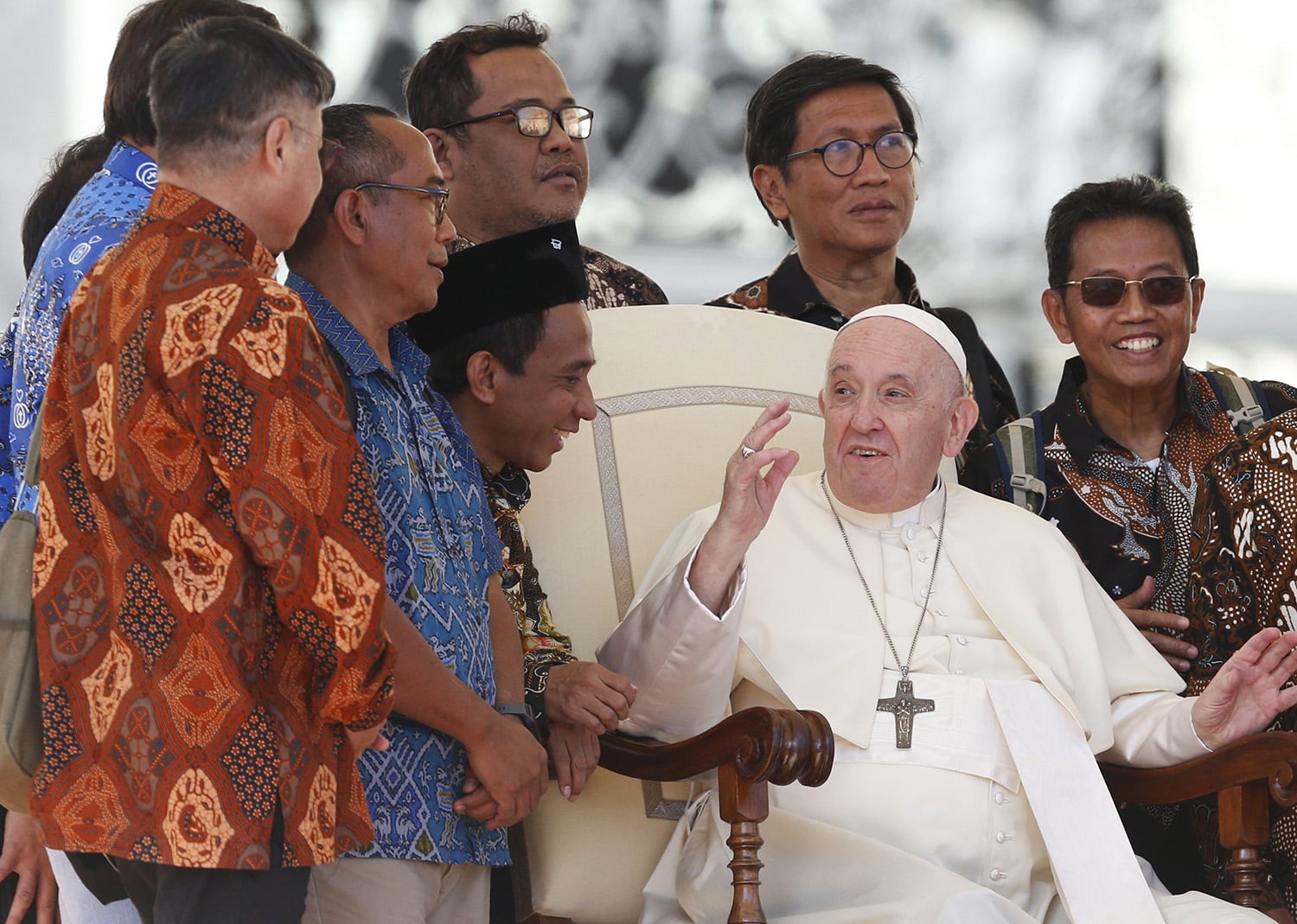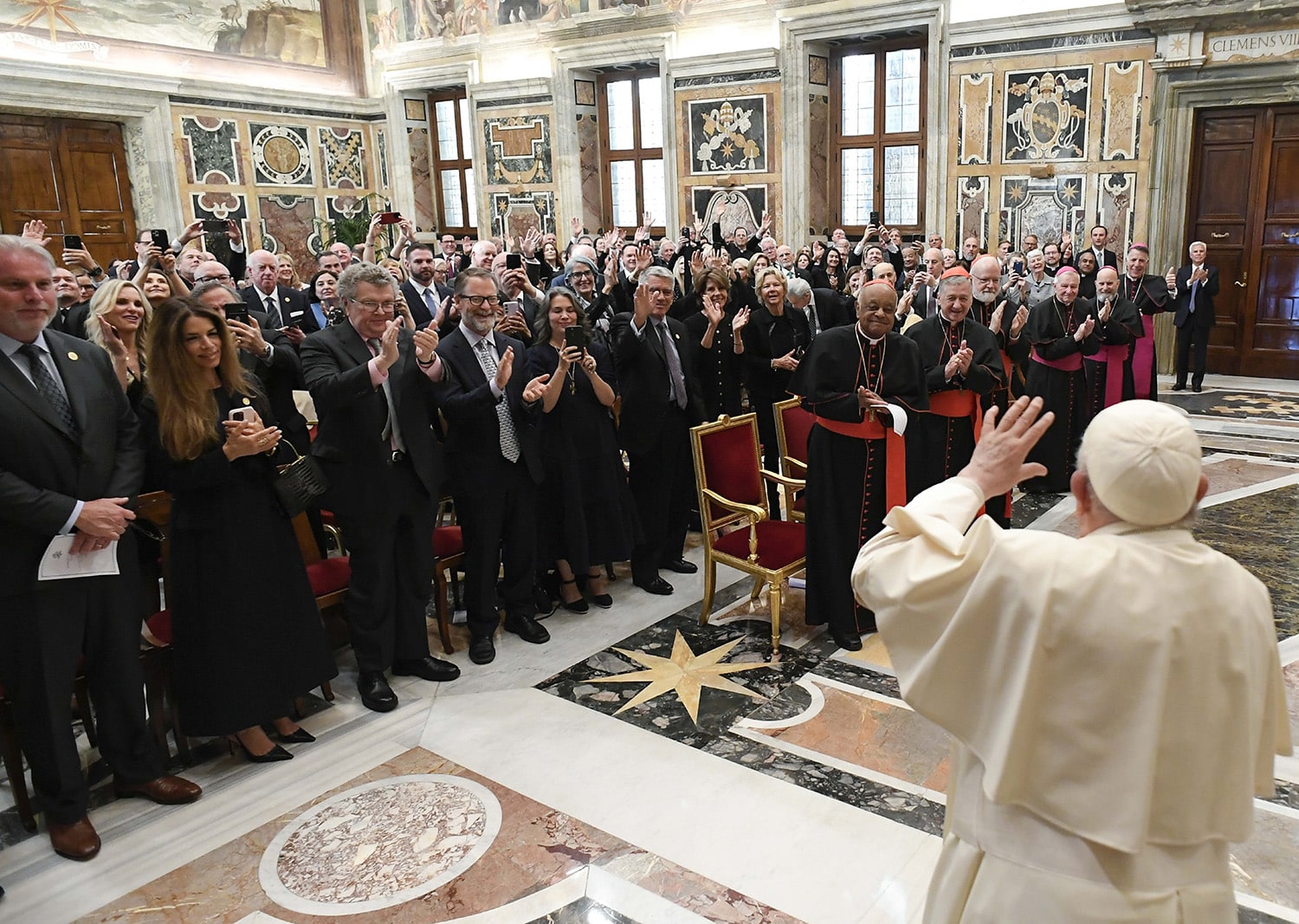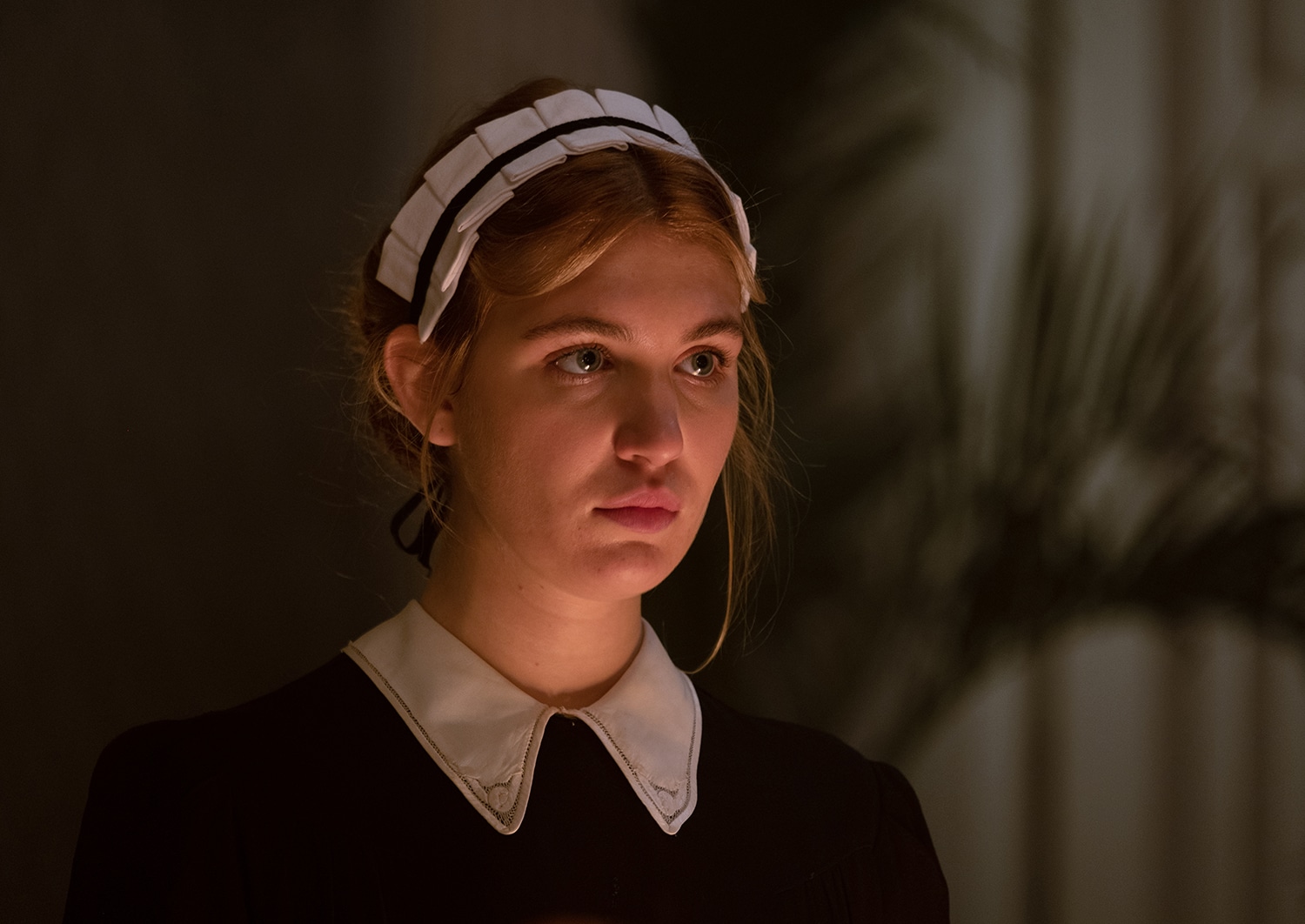When Mother Mary Veronica Fitch set out to establish a new religious community, she never imagined that it would one day provide an animal therapy program.
People are “willing to extend love to [animals] that they might not extend to people when they’ve been wounded,” the founder of the Franciscan Congregation of Divine Mercy (FCDM) said of how God works through animals. “The animals themselves … help people to feel and give love and to believe themselves lovable.”
Today, animals — 10 horses, four cats and one dog — are a large part of her new Catholic congregation’s ministry. It all began when, in 2016, Mother Mary Veronica left the Poor Clares with permission to found the FCDM community now based on a farm in Marshfield, Wisconsin. Four years later, in 2020, Bishop William P. Callahan of La Crosse, Wisconsin, approved the congregation as a “private association of the Christian faithful with the intent of becoming a religious institute.”
Two sisters belong to the FCDM: Mother Mary Veronica and Sister Maria Lucia. Another two women are applying to join later this year.
These sisters — clad in brilliant red-and-white habits — seek to live mercy in their daily lives while helping others do the same. Their community accomplishes this by providing animal therapy, particularly for children suffering from trauma, in addition to catechesis, spiritual direction, retreats, classes, talks and other activities.
All of these services, Mother Mary Veronica told Our Sunday Visitor, are free.
“Truth, goodness and beauty draw people to God, and the animals have that and they share that.”
Mother Mary Veronica Fitch
She drew inspiration for the congregation from the diary of St. Faustina Kowalska, a Polish religious sister and mystic who fostered devotion to God’s Divine Mercy. The congregation consists of three aspects: 1) the monastic-contemplative aspect (contemplative religious sisters); 2) the monastic-apostolic branch (active religious sisters) and fraternity branch (individuals devoted to Divine Mercy while living in the world); and 3) the companions of the FCDM (individuals who commit to one daily act of mercy and prayer).
In addition to the two sisters, the congregation includes eight lay members in the fraternity branch and more than 200 people belonging to the companions of the FCDM.
For her part, Mother Mary Veronica initially hesitated to enter religious life because she did not want to give up her past life, especially the animals in it. The Minnesota native previously worked as a horse trainer, riding instructor and barn manager on her parents’ farm, where she witnessed that animals draw people to God. Among other things, she saw marriages reconciled, conversions to the Catholic faith, and even one woman returning to confession after an abortion.
“I see that as a sign God gave me that this would be very fruitful in the future as a sister,” she commented. “But I didn’t see that then.”
A program of comfort and healing
Mother Mary Veronica began the animal therapy program, she said, after receiving inspiration during Mass and later moments of inspiration. Today, around 40 people, including children suffering from trauma, at-risk children and children with autism, participate in the program.
The program centers on the sisters’ horses: Ignatius, Anthony, Catherine, Colette, Cecilia, Agnes, Agatha, Margaret Mary, Maria and Lucy.
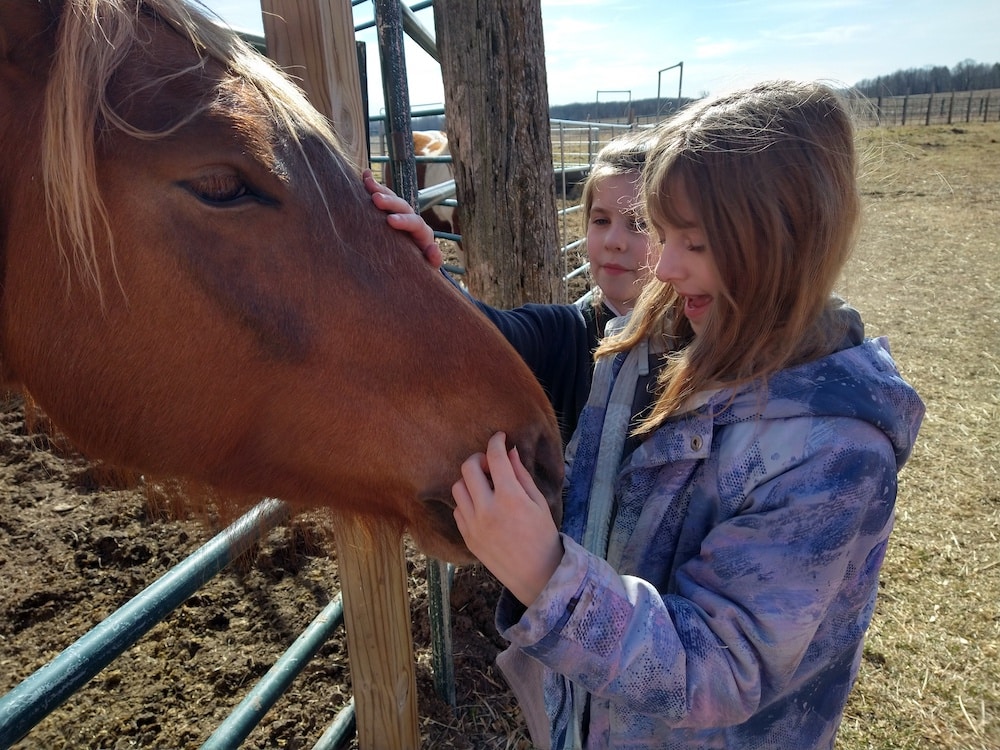
“Horses are an amazing therapy animal,” Mother Mary Veronica said. “They are emotionally extremely sensitive and this can be a great source of healing.”
Depending on their age, the children interact with the horses in different ways. The older children learn positive reinforcement training, or training by rewarding the horses’ good behavior. The younger children, she said, go on pony rides and pet the horses.
The horses also benefit from the program, she confirmed.
“Most of our horses have had some pretty significant trauma,” she said of their horses, some of which once ran wild. “All but one are mustangs and these horses have had to endure significant trauma during the process of being rounded up and separated from their families.
Two of them, she added, were rescued from the kill pen.
In addition to the horses, the sisters also care for one dog (Faith) and four cats (Majesty, Mercy, Trinity and Unity) who comfort the people they encounter.
Mother Mary Veronica, an instructor and evaluator with Therapy Animals Unleashed, a therapy dog program, trains therapy dogs and has provided dog obedience therapy. The sisters’ own white German Shepherd, Faith, works with children and helps people during spiritual direction as they work through trauma.
“Faith is very sensitive and loving and provides great solace, especially in touch,” Mother Mary Veronica, who is also a trauma-informed life coach, described.
A call to action
Mother Mary Veronica shared what she most wanted people to know about her congregation and their way of life, beginning with “we need you to help us in fulfilling it.”
Online, the congregation lists several ways to support the congregation, beginning with prayer. The sisters also rely on volunteers, donations of material items and financial gifts.
“We have found that we are not going to be able to obtain enough land in our current location in order to develop our apostolates properly and to have a real monastery built for us and to have enough space for sisters to live,” Mother Mary Veronica said, emphasizing a need for financial support. “We are looking for something in the area of 100 to 150 acres in land along with buildings.”
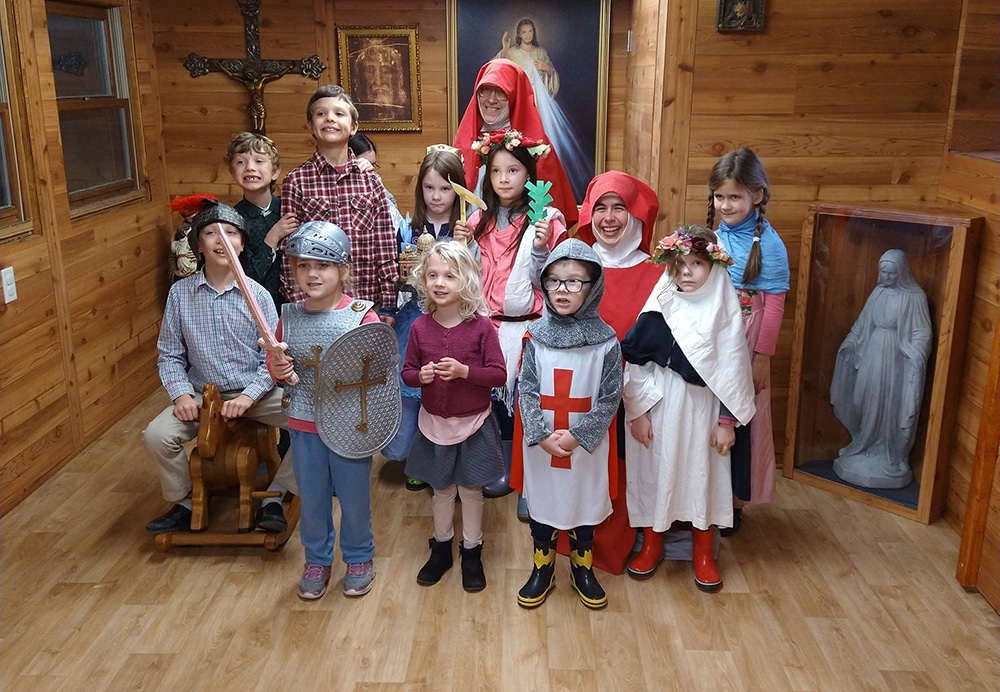
She also asked that people spread the word about them to women who are interested in dedicating their life to God and interested in animals.
“Truth, goodness and beauty draw people to God,” she stressed, “and the animals have that and they share that.”

